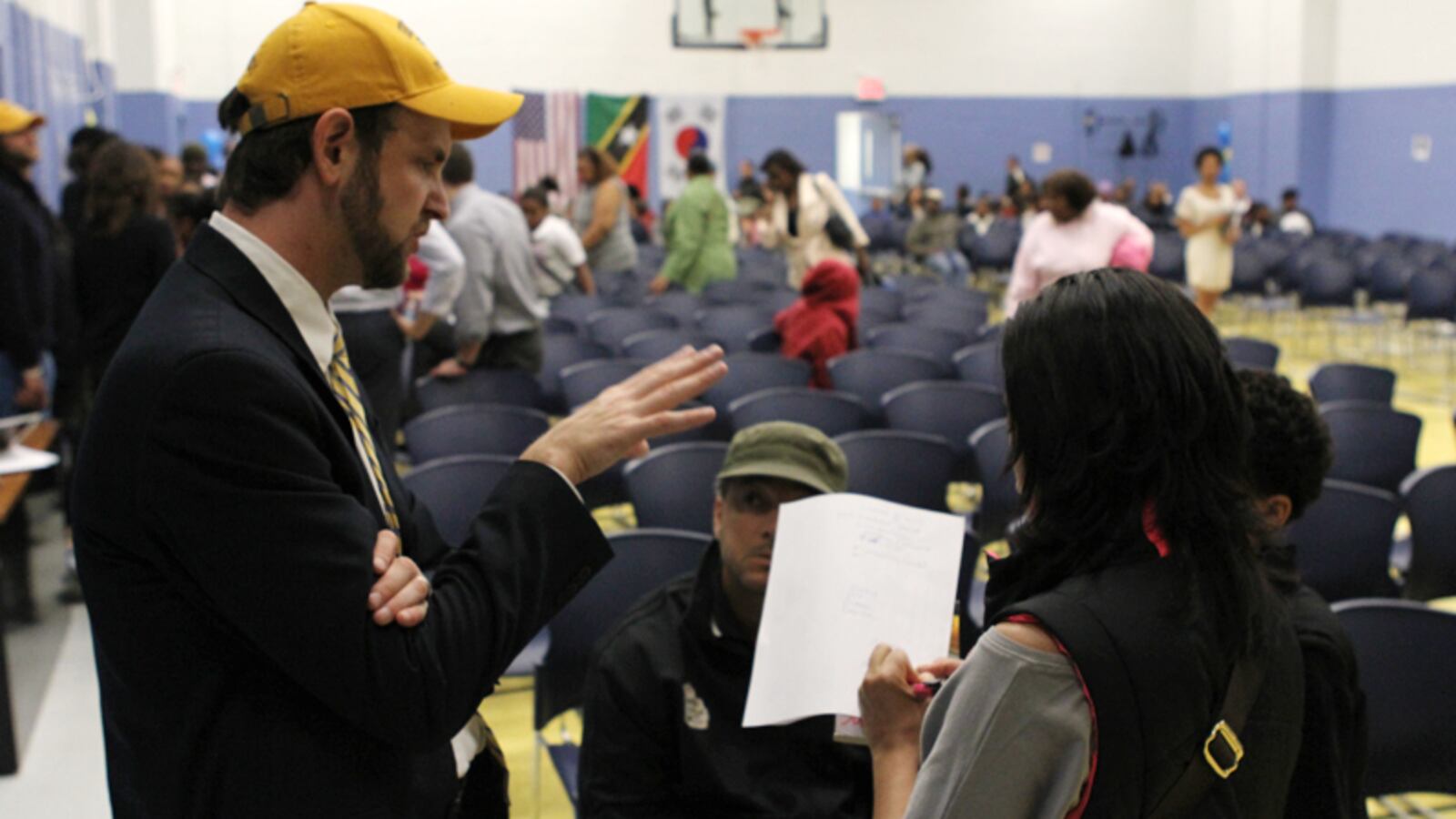In a city of roughly 1,800 schools, many have names that have little to do with what students experience.
Not so for Democracy Prep, a network of charter schools that a new study concludes makes students far more likely to vote once they turn 18.
The study, conducted by independent researchers commissioned by Democracy Prep, took advantage of New York City’s charter school admissions rules to examine the impact of applying to, getting accepted to, and enrolling in the network’s schools on later civic participation.
Looking at more than a thousand students who applied between 2007 and 2015 who were old enough to vote in 2016, the researchers found that just being selected in the admissions lottery was correlated with a slight increase in voting rates. Students who were chosen voted 6 percentage points more often than students who were not.
The impact was much greater on students who were chosen and actually enrolled: They voted 24 percentage points more often than students who applied but never got a chance to attend.
The findings suggest that Democracy Prep is achieving its explicit goal of promoting civic participation. They also offer one answer to the question of whether charter schools, which are publicly funded but privately managed, undermine democracy.
“Democracy Prep provides a test case of whether charter schools can successfully serve the foundational purpose of public education—preparation for citizenship—even while operating outside the direct control of elected officials,” the researchers write. “With respect to the critical civic participation measures of registration and voting, the answer is yes.”
Seth Andrew, who started the network with a single middle school in Harlem in 2006, said he was pleased by the findings — and unsurprised, because the network has baked civic participation into its culture and academic program. Students must take on a personal “Change the World” project and pass the U.S. citizenship exam to graduate.
“This idea of ‘change the world’ was very central to what we were trying to get our kids prepared and excited to do,” he said.
Creating more engaged citizens takes more than just adding a civics class, said Katie Duffy, the CEO of Democracy Prep. Schools have to make democracy a part of the daily culture, she said.
“The more you talk about the importance of voting, the importance of elections, the importance of advocacy,” she said, “the more it becomes ingrained in our kids.”
The network has also long used Election Day — when district-run schools are often closed so their buildings can be used as polling stations — as a teachable moment.
In 2008, Democracy Prep students spent the day working to get out the vote in their neighborhoods. Four years later, Democracy Prep schools were among the few housed in city space that got special permission to stay open — and the network sent students out to advance the “Vote for Somebody” campaign it had kicked off in a catchy viral video. The next year, students promoted a different message — “I can’t vote but you can” — in an effort to boost the city’s 11 percent primary election voter participation rate.
The network’s influence extends far beyond its students. In 2012, six years into the network’s existence, officials estimated that students had helped 5,000 New Yorkers register to vote. Now, the network runs 22 schools in five states.
Andrew said the study’s findings about the impact of the network — which he left in 2012 to work on other civic engagement initiatives, including at the White House — offer only a start at a time when the United States lags behind other developed countries in voter turnout.
“I was thrilled with the outcome,” said Andrew. “But the as the guy that founded Democracy Prep I feel like there’s a whole lot of room to grow.”
Correction: A previous version of this story described the increase in voting caused by Democracy Prep as a percent figure, rather than in percentage points.

